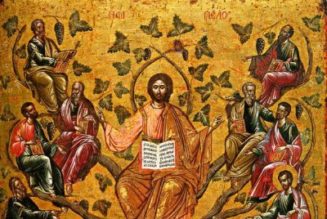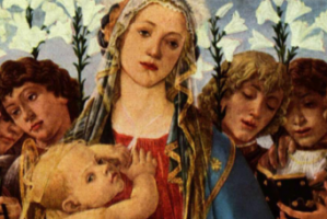“Those who have a host of friends and are on familiar terms with everybody seem to be real friends of no one.”
Aristotle, Nicomachean Ethics
It is our worst nightmare. Everyone else has real friends. But somehow I don’t, because I’m just not up to it, or people just aren’t interested.
This is not Aristotle’s point, and it is simply not true. You are worthy of having friends. Indeed, we were made for it. We can have this kind of relationship that is at the center of human life. Yet the reality is that we often fail to do what we are capable of doing.
We must know what ‘real friends’ are, and how to go about making them a reality.
This begins in our making good choices. Cultural habits and expectations are working against us. It is not just the young who are suffering from the plague of slavery to appearance. For many, appearances are overwhelming reality. We seek relationship as part of achieving a look, a persona, or a self-image that makes us feel secure or important.
After the words quoted above, Aristotle proceeds to say that these people with a host of ‘friends’ are generally called obsequious. Meaning? The obsequious man is the one whose approach to other persons is largely influenced by something he is trying to achieve, for himself. His interactions tend to be governed by eliciting certain responses, and attaining some status.
I am convinced that this is common today by default. We are not aware and thinking in terms of the demands and the gift of real friendship. The approach of collecting friends as ornaments on our wall of personal achievement has become customary and expected.
What to do? We can modify our expectations, and modify our approach to relationships. We can be friendly with many; and go deeper with a few.
Friendship is always about living in the truth—the truth about the other, the truth about ourselves, and the truth about human life. We humans often find ourselves living in an alternate reality, living as though things are other than they are. We can choose to look again and to see.
The truth can be hard. Very hard. But it is always better. It is better than what we have thought was the case; it is better than anything we could imagine or dream.
We can live in integrity. We can choose to forego appearance—and the many tangible advantages it can provide. We can choose to go deeper with some, grounding these friendships in the simple and profoundly real things of human life. This requires self-examination, willingness to change, and a willingness to act differently from accepted norms.
We can only go really deep with a few. To see this is to grasp something of what it is to be human. To live this is not to reject other people. On the contrary, even one real, deep friendship brings out our true self, and it will be a leaven for all our other relationships.
Who we are calls out for this. It is a matter of choosing to receive the gift: of becoming ourselves, and of having real friends.
Aristotle (384-322 B.C.), student of Plato, tutor of Alexander the Great, has been considered by many to be the greatest ancient philosopher. The Nicomachean Ethics is his major ethical work.
May is graduation time. So for many of us, it is a time for goodbyes. It is also a good time to reflect on the importance and even the gift of goodbyes, for all of us. We understandably dread goodbyes, especially with those we love most. Moments of parting can be…
“Alone of all, the human race lifts up its head on high, and stands in easy balance with the body upright… Thy glance is upward, and thou dost carry high thy head, and so thy gaze is skyward…” Boethius, The Consolation of Philosophy Philosophers and theologians,…
“Mnohaya lita” Ukrainian wish for birthday and other celebrations, rooted in Byzantine liturgy. Literally, many years. I have always loved the Ukrainian version of “Happy Birthday,” which I first encountered when I met my wife’s family. In its several melodic…
Husband, father, and professor of Philosophy. LifeCraft springs from one conviction: there is an ancient wisdom about how to live the good life in our homes, with our families; and it is worth our time to hearken to it. Let’s rediscover it together. Learn more.

Join us!
Please enter your email address to receive a Wednesday Quote and Reflection once a week. I would be honored to be partners in mining the wisdom of the ancients.
You have Successfully Subscribed!
Join Our Telegram Group : Salvation & Prosperity












